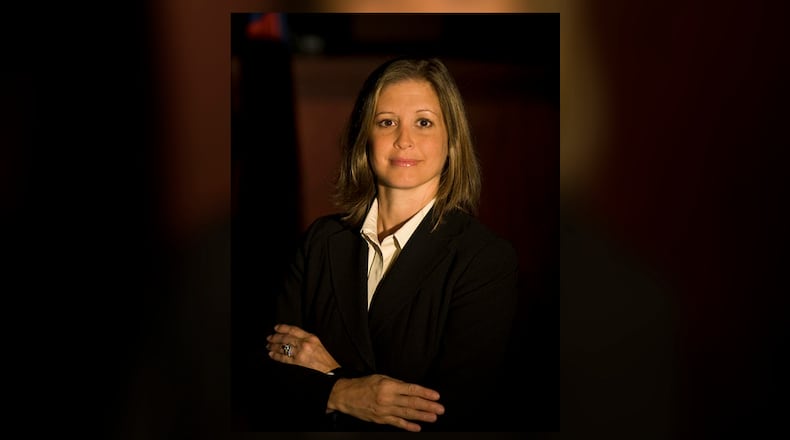A judge running for a seat on the Georgia Supreme Court may have inadvertently run afoul of judicial ethics rules by expressing support for DeKalb County’s district attorney in a social media post.
It happened when Judge Sara Doyle, a member of the Georgia Court of Appeals, described on Facebook a busy day on May 9 that began with dropping off her daughter at the school bus stop, then driving to Columbus for a Law Day function. After that, Doyle said, she went "to Decatur to support Sherry Boston."
The Decatur stop was a reelection campaign event for District Attorney Sherry Boston, and Doyle also posted on her Facebook page a photo of one of Boston’s campaign posters.
Georgia’s canons of conduct say judges cannot endorse a candidate running for public office. They also say judges should act at all times in a manner that promotes public confidence in the impartiality of the judiciary. As an appeals court judge, Doyle hears criminal cases from DeKalb.
In an interview, Doyle said she was aware that judges cannot endorse candidates for public office. For this reason, she quickly amended her post when a fellow appeals court judge raised concerns about it.
“I didn’t think about the word ‘support’ when I did it,” Doyle said. “I inadvertently used that word.”
Her intention, she said, was to express support for Boston “as a good friend, as she is one.”
Doyle, a Court of Appeals judge since 2009, has announced she is running for what will be an open seat on the state Supreme Court when Justice Robert Benham retires at the end of next year. Former U.S. congressman John Barrow has also entered the contest.
Doyle’s social media post shows how easy it is for judges to breach ethics rules governing campaigns and how difficult it can be to navigate them. For example, judges cannot publicly endorse a candidate but they are allowed to attend campaign events for candidates. They can even give campaign contributions to candidates.
Doyle said she substituted “support Sherry Boston” with “see Sherry Boston” to avoid any appearance of an official endorsement. She also removed the photo of Boston’s reelection poster after being asked about it by an Atlanta Journal-Constitution reporter.
Marietta lawyer Robert Ingram, who once chaired Georgia’s judicial watchdog commission, declined to comment on Doyle’s post. But he said there’s a good reason why state ethics rules prohibit judges and judicial candidates from endorsing someone running for public office.
"The rules are there not to infringe upon a judge's right to engage in the political process, but to avoid the appearance it creates," Ingram said. "That's because if a judge is endorsing a political candidate, and you have litigants coming before the judge and witnesses appearing in a case who supported the other candidate, it creates an impression that is not good for the judiciary."
Earlier this year, DeKalb Superior Court Judge J.P. Boulee recused himself from the pending murder case against former DeKalb police officer Robert Olsen apparently for that same reason. This occurred after the judge was listed as a sponsor on a flyer distributed by Boston for a 5K race she hosted on behalf of a domestic violence center. When withdrawing from the case, Boulee said judges must disqualify themselves from cases in which their impartiality might reasonably be questioned.
Doyle said she does not believe she needs to recuse herself from cases involving the DeKalb DA’s office. She also said the court has procedures in place to address any motions that seek to disqualify a judge from hearing an appeal.
About the Author
The Latest
Featured





